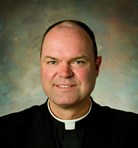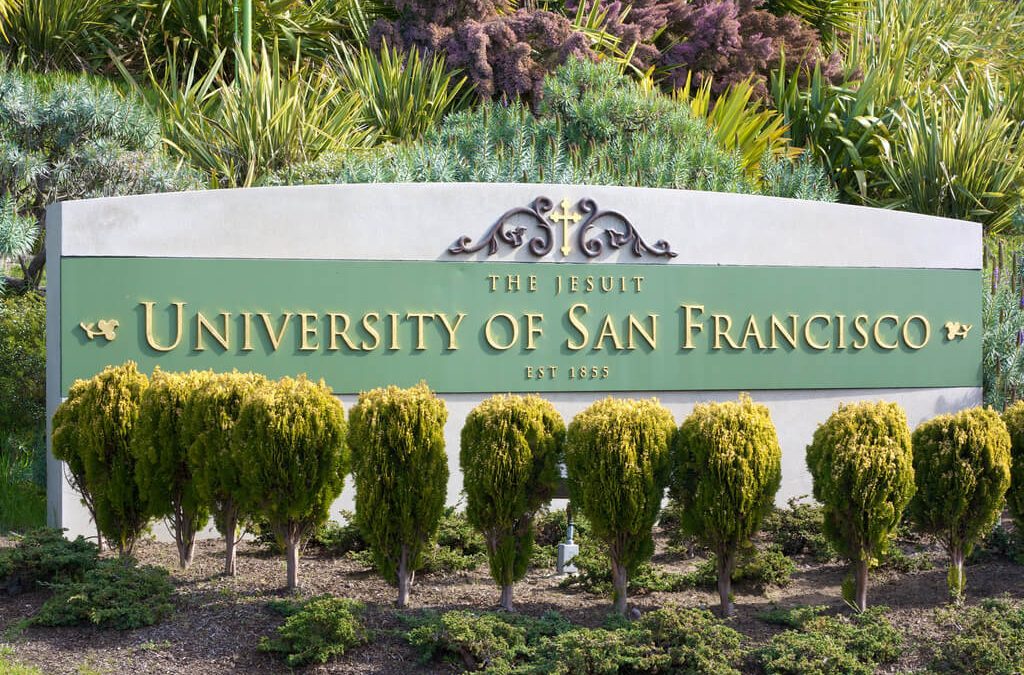In July 1978, a symposium marking the tenth anniversary of Humanae Vitae took place at the University of San Francisco. The symposium was sponsored by the Archdiocese of San Francisco and the St. Ignatius Institute of the University of San Francisco. For the occasion, Cardinal Jean-Marie Villot, Secretary of State wrote a letter to Archbishop John Quinn on behalf of Pope Paul VI. In the letter, Cardinal Villot explained that the Holy Father saw the symposium as an important
“response to the denial as such of the teaching, and as a clarification against certain interpretations that would deprive the Encyclical of its true meaning and in practice distort its application.”
Cardinal Villot continued:
“At the same time [Pope Paul VI] has repeatedly expressed his gratitude to all those who have assisted in scientific research, promoting natural family planning, not as an end in itself—to avoid conception—but as a licit means whereby a couple may worthily exercise responsible parenthood, after a decision that takes into account all the factors involved.”
Moreover, Cardinal Villot stated that
“His Holiness wishes again to offer his encouragement to all those who are striving to support and spread the teaching of Humanae Vitae, and to perfect natural methods that will assist couples to live in full conformity with God’s design for marriage. He once more urges all involved in research and promotion to the full measure of collaboration among themselves.”
As it turned out, 1978 became known as the “Year of Three Popes”. On Aug 6, Pope Paul VI went on to his eternal reward. Following the 33 day pontificate of Pope John Paul I, Pope John Paul II was elected to the chair of Peter on October 16, 1978. In a sense, the 1978 Humanae Vitae symposium was a worthy and poignant tribute to Pope Paul VI during the last month of his life and after a decade of perhaps the most important act of Paul VI’s papacy: re- affirming the truth, beauty and goodness of Church teaching regarding the transmission of human life.
Excerpt from the keynote address July 1, 1978 by Malcolm Muggeridge, the well-known British journalist, reflecting on the importance of Humanae Vitae
“What I want to say tonight, as a non-Catholic, as an aspiring Christian, as someone who, as an old journalist, has watched this process of deterioration in our whole way of life—what I want to say is that, in that encyclical, the finger is pointed on the point that really matters. Namely, that through human procreation the great creativity of men and women comes into play, and that to interfere with this creativity, to seek to relate it merely to pleasure, is to go back into pre-Christian times and ultimately to destroy the civilization that Christianity has brought about.
That is what I want to testify to…If there is one thing I feel absolutely certain about, it is that. One thing I know will appear in social histories in the future is that the dissolution of our way of life, our Christian way of life and all that it has meant to the world, relates directly to the matter that is raised in Humanae Vitae. The journalists, the media, write and hold forth about the various elements in the crisis of the Western world today: about inflation, about over-population, about impending energy shortages, about detente, about hundreds of things. But they overlook what your church has not overlooked, this basic cause: the distortion and abuse of what should be the essential creativity of men and women, enriching their lives as it has and does enrich people’s lives – and when they are as old as I am, enriches them particularly beautifully, when they see as they depart from this world their grandchildren beginning the process of living which they are ending. There is no beauty, there is no joy, there is no compensation that anything could offer in the way of leisure, of so-called freedom from domestic duties, which could possibly compensate for one-thousandth part of the joy that an old man feels when he sees this beautiful thing: life beginning again as his ends, in those children that have come into the world through his love and through a marriage which has lasted through 50 and more years. I assure you that what I say to you is true, and when you are that age there is nothing that this world can offer in the way of success, in the way of adventure, in the way of honors, in the way of variety, in the way of so-called freedom, which could come within a hundredth part of measuring up to that wonderful sense of having been used as an instrument, not in the achievement of some stupid kind of personal erotic excitement, but in the realization of this wonderful thing – human procreation.”
Fr. Blaise Berg interviewed Fr. Joseph Fessio, SJ, Founder of Ignatius Press and Co-founder of the St. Ignatius Institute, discussing the 1978 symposium:
Fr. Berg: Fr. Fessio, What do you recall about the 1978 Conference?
Fr. Fessio: I don’t know how we did it, but I remember that the USF gymnasium was packed. As far as speakers go, Fathers Hans Urs von Balthasar and Louis Bouyer were there. Archbishop John Quinn planned to attend, but he came down with appendicitis and had to have his appendix removed! Other speakers included Malcolm Muggeridge, Dr. Thomas Hilgers, Rhonda Chervin, Fr. Gerald Coleman and Dr. James Hitchcock. Mother Teresa was invited and hoped to come, but she could not make the trip to San Francisco.
Fr. Berg: Were any of the talks published?
Fr. Fessio: Fr. Balthasar’s talk, “A Word on Humanae Vitae” was published by Ignatius Press in “New Elucidations”, a collection of talks and essays by Fr. Balthasar. Balthasar spoke very good and clear English and his talk was a brilliant theological reflection on Ephesians 5:21-32. In his talk, Balthasar commented on Adrienne von Speyr’s contributions on this key scriptural passage on marriage. Malcolm Muggeridge’s talk must have been published in some form, because it is possible to find it on the web.
Fr. Berg: We recognize significant contributions on this topic with an award in the name of Fr. Marc Calegari. What are your memories of Fr. Calegari?
Fr. Fessio: I remember that Father Calegari’s translation of Humanae Vitae was the first work published by Ignatius Press. Also, I recall visiting Fr. Calegari in his quarters one time. He had books on the bed, on the desk, on shelves, on the floor, everywhere except on the chair. I asked him where he slept. He said that he slept in the chair!
 Father Blaise Berg, Treasurer of the Executive Board of CANFP, is Pastor of St. Mary’s Parish in Vacaville. Ordained 19 years, Fr. Berg’s previous experience includes serving the Diocese of Sacramento as Vicar for Clergy, Pastor of St. John the Baptist Parish and Chaplain/Director of the St. Thomas Aquinas Newman Center, both in Chico, and Secretary to the Bishop and Vice-Chancellor. Father Berg completed a baccalaureate degree in theology (S.T.B.) at the Gregorian University, Rome and licentiate (S.T.L.) and doctoral degrees in theology (S.T.D.) at the John Paul II Institute for Studies on Marriage and the Family at the Lateran University, Rome.
Father Blaise Berg, Treasurer of the Executive Board of CANFP, is Pastor of St. Mary’s Parish in Vacaville. Ordained 19 years, Fr. Berg’s previous experience includes serving the Diocese of Sacramento as Vicar for Clergy, Pastor of St. John the Baptist Parish and Chaplain/Director of the St. Thomas Aquinas Newman Center, both in Chico, and Secretary to the Bishop and Vice-Chancellor. Father Berg completed a baccalaureate degree in theology (S.T.B.) at the Gregorian University, Rome and licentiate (S.T.L.) and doctoral degrees in theology (S.T.D.) at the John Paul II Institute for Studies on Marriage and the Family at the Lateran University, Rome.

